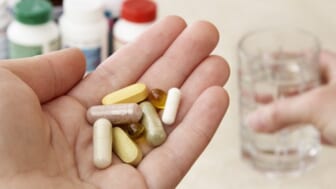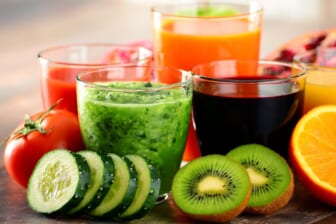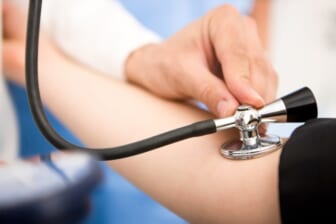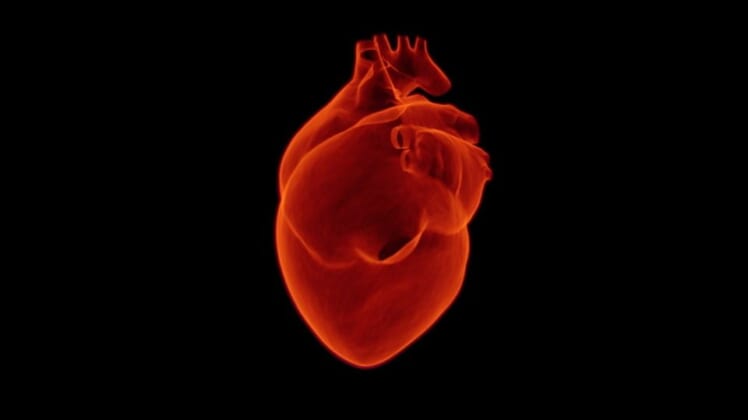
Hypertension is known as the silent killer for good reason. Some 50 million Americans have high blood pressure and one-third of those don’t even know it, despite the fact that it’s very easy to diagnose.
Hypertension kills some 40,000 Americans each year, and another 200,000 die annually of a high blood pressure-related illness.
People with hypertension are seven times more likely to have a stroke, six times more likely to have congestive heart failure, and three times more likely to develop a heart attack. In all, hypertension claims more lives per year in the United States than cancer.
Those numbers are doubly sad: first, because they are so high, and second, because they could easily be so much lower.
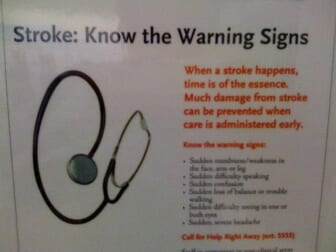
Stroke: Know the Signs, Save Lives
Types of Hypertension
More than half of the people with hypertension are not receiving treatment at all, and one-quarter of them are being inadequately treated. Only about one-fifth are receiving the proper treatment to control their blood pressure.
There are two types of hypertension. More than 90 percent of all cases of hypertension involve what is known as essential hypertension, which is high blood pressure without a definite cause. The rest, fewer than 10 percent of the cases, have a known cause; this is known as organic hypertension, or secondary hypertension.
Organic hypertension occurs when a specific disease, such as a tumor of the kidneys, vascular disease, or hormonal disease, causes your blood pressure to be elevated.
What is Blood Pressure?
When we talk about blood pressure, we are referring to a comparison of the blood pressure when the heart is beating versus the pressure when the heart is resting.
A blood pressure reading is represented as the systolic (or beating pressure) over the diastolic (or resting) pressure.
A normal blood pressure is anything lower than 120 over 80. But if you are 140 over 90 or above, you have high blood pressure. Anything in between the two sets of numbers is considered prehypertensive.
How can you tell you have high blood pressure?
Certainly not by your symptoms; most people with hypertension don’t have any. But any qualified health professional can measure your blood pressure in a very non-evasive way using a blood pressure machine.
Of course, if your blood pressure is very high, you will have symptoms like nose bleeds, irregular heartbeats, headaches, and dizziness.
Hypertension affects more males than females and more blacks and Latinos than whites.
The lifestyle characteristics that can put you at risk of developing hypertension include obesity, lack of exercise, a diet rich in sodium, and excessive alcohol consumption. Smoking raises blood pressure as well.
Genetic factors may be involved, too, as some individuals have a family history of hypertension. In younger women, hypertension is sometimes associated with birth control pills. Other medications that can give you high blood pressure include some nonsteroid anti-inflammatories, cold remedies, decongestants, and appetite-suppressant pills.
Diet and Blood Pressure
Your diet plays a very significant role in blood pressure. Foods high in cholesterol thicken the blood with fat, and that forces the heart to work harder, thereby raising your blood pressure.
As the heart works harder to push that blood through, the heart becomes larger because it has to expand more to grab enough volume in order to squeeze the blood out of its chambers.
If the heart has to work harder, the heart and the arteries come under tremendous pressure and stress, and this, of course, weakens the heart. It also means that organs like the kidneys and eyes and liver don’t get enough oxygenated blood, which causes cell damage to those organs that ultimately damages them.
A high salt intake also makes you retain more water in your vascular system, and that, too, increases your blood pressure. To reduce your risk of high blood pressure, the American Heart Association (AHA) suggests that you ingest no more than 2,400 milligrams of sodium a day. That’s just one and a quarter teaspoons of salt per day, and it mounts up faster than you think; many foods, especially prepared foods, contain large amounts of sodium. And then there is all the salt we actually add to our food.
Being overweight is also a fundamental factor in developing high blood pressure. Conversely, losing weight is one of the essential ways of improving your blood pressure. Lack of exercise and physical inactivity is another risk factor for heart disease. This means that exercising will improve your cardiac performance, making your heart work better, thus lowering your blood pressure.
Stress has also been linked to hypertension: it narrows the blood vessels, thereby causing high blood pressure, so it is vital for people who have high blood pressure to learn how to manage their stress.
The treatment of high blood pressure involves making dietary changes, losing weight, lowering cholesterol, practicing relaxation and meditation techniques, and getting some exercise. If these don’t work, there are medications that can specifically target the kind of hypertension you have.
So how do we prevent high blood pressure?
- Number one, watch your weight. If you are 30 percent above your ideal body weight, you’ve got a problem and are more likely to develop high blood pressure.
- Second, if you’re drinking excessively—more than three hard drinks a day—this also is a problem.
- Third, watch your salt intake; eat fewer processed foods. If you go out to eat, ask your waitperson if the kitchen can reduce the amount of salt in your order.
- Eat a balanced diet. Consume foods that can help lower your cholesterol, like vegetables and grains.
- Don’t smoke; nicotine is a major vasoconstrictor.
- Exercise regularly; try to do 30 minutes’ worth of aerobic activities three to four times a week.
The bottom line on hypertension is to do your best to prevent it. If you can’t, identify it, and then treat it. Whatever you do, don’t become a statistic like so many other Americans.

